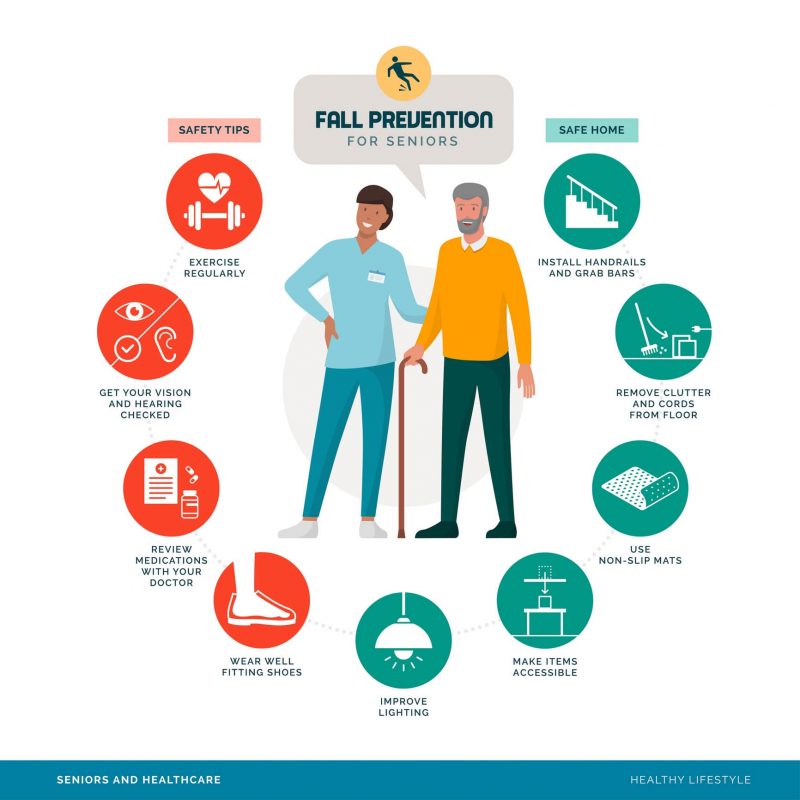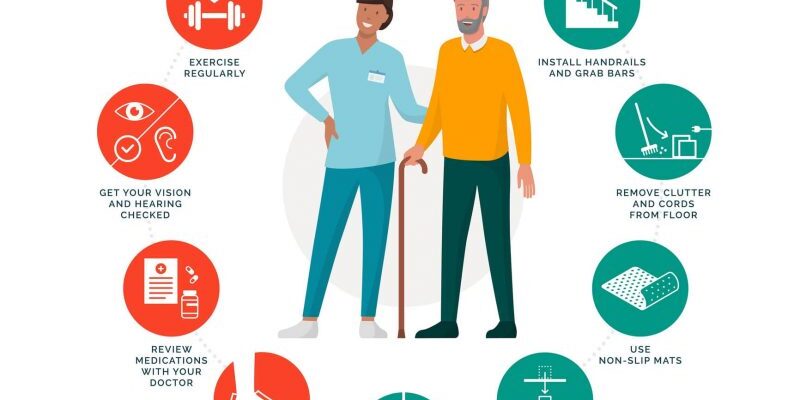It seems that from the moment you learn to walk, you also learn to struggle not to fall. Falls Prevention Awareness, celebrated in September, is a national health campaign observed on the first day of fall to increase awareness around falls health and injury prevention.
The reporting of falls has increased over the years. Many falls do not cause injuries, although some falls do cause serious injury such as broken bones or a head injury. There are a significant number of falls that are severe enough to require medical attention each year.
As reported by the Center for Disease Control (CDC), next to the elderly, children between zero to four years old and youths between fifteen to nineteen years old are the most at risk to suffer from a head injury caused by a fall. The severity of head injuries can differ depending on the fall’s impact, but one of the most severe outcomes of hitting your head when you fall is Traumatic Brain Injury (TBI).
We have all seen children trip on air, their own feet and general clumsiness. Many of these falls are preventable. There are strategies to protect our children from fall-related injuries which include:
- Supervision is the key!
- Installing safety gates on stairs and guards on windows to prevent falls by young children.
- Providing a soft-landing surface below playground equipment.
- Using the proper safety equipment, such as knee pads, elbow pads, wrist guards, and helmets, while playing sports.
- Removing fall hazards whenever possible (objects on the floor, clutter, unsecured area rugs, extension cords).
Across all age groups and regions, all genders are at risk of falls. Risk factors effecting the adult population include:
- occupations at elevated heights or other hazardous working conditions.
- alcohol or substance use.
- socioeconomic factors including poverty, overcrowded housing, sole parenthood, young maternal age.
- underlying medical conditions, such as neurological, cardiac, or other disabling conditions.
- side effects of prescription and over-the-counter medication, physical inactivity, and loss of balance, particularly among older people.
- poor mobility, cognition, and vision, particularly among those living in an institution, such as a nursing home or chronic care facility.
- unsafe environments, particularly for those with poor balance and limited vision.
Older adults are very vulnerable to falls. When a senior falls, the chances of more serious injury due to their age is worrisome. There are many risk factors which can be modified to prevent them. Just as you had to child proof your toddler’s environment, the same needs to be done for our senior citizens. Observe their home in terms of possible tripping and falling risks. Accident-proof your home; getting rid of tripping hazards, adding grab bars in vulnerable areas like the shower and toilet, improve the lighting throughout the home, use non-slip mats in the bathroom and area rugs throughout the home.
How can you prevent falls and strengthen your body against them?
- Do exercise regularly, especially those that will improve balance.
- Have your vision checked regularly.
- Wear flat, wide toed shoes
- Remain active
- Do appropriate weight training to strengthen legs.
What should you do when a fall occurs?
First and foremost, stay calm. Take a moment to assess your situation. Do you feel pain? Is there blood? Are you able to move?
If you are not hurt, try to get up from the floor slowly and carefully. Call a friend, family member or neighbor and let them know
 If you are hurt or unable to get off the floor, call for help and keep warm and moving as best you can while you wait. Fall alert pendants and bracelets are wonderful tools, as are smart speaker such as Alexa. Use your phone to call a neighbor or friend, or 911 if you feel you are injured.
If you are hurt or unable to get off the floor, call for help and keep warm and moving as best you can while you wait. Fall alert pendants and bracelets are wonderful tools, as are smart speaker such as Alexa. Use your phone to call a neighbor or friend, or 911 if you feel you are injured.
Whether or not you think you are injured, you should still be checked over by your doctor for injuries and even possible causes of the fall. You should be more concerned when:
- A person falls more than twice in a year, especially if the falls occur inside the house
- There is loss of consciousness or difficulty in remembering the events surrounding the fall
- A person stays on the ground for several hours
If you are unsure of the cause of the fall and whether or not you may have sustained injury, it would be our pleasure to see you for a consultation.
Dr. Marshall P. Allegra is a board-certified orthopedic surgeon in private practice in Monmouth County for over 25 years. As an experienced diagnostician, Dr. Allegra can expertly determine your bone health, injuries, and then determine the best treatment options to boost your normal life, restore functionality and range of motion as quickly as possible and avoid long term implications.

